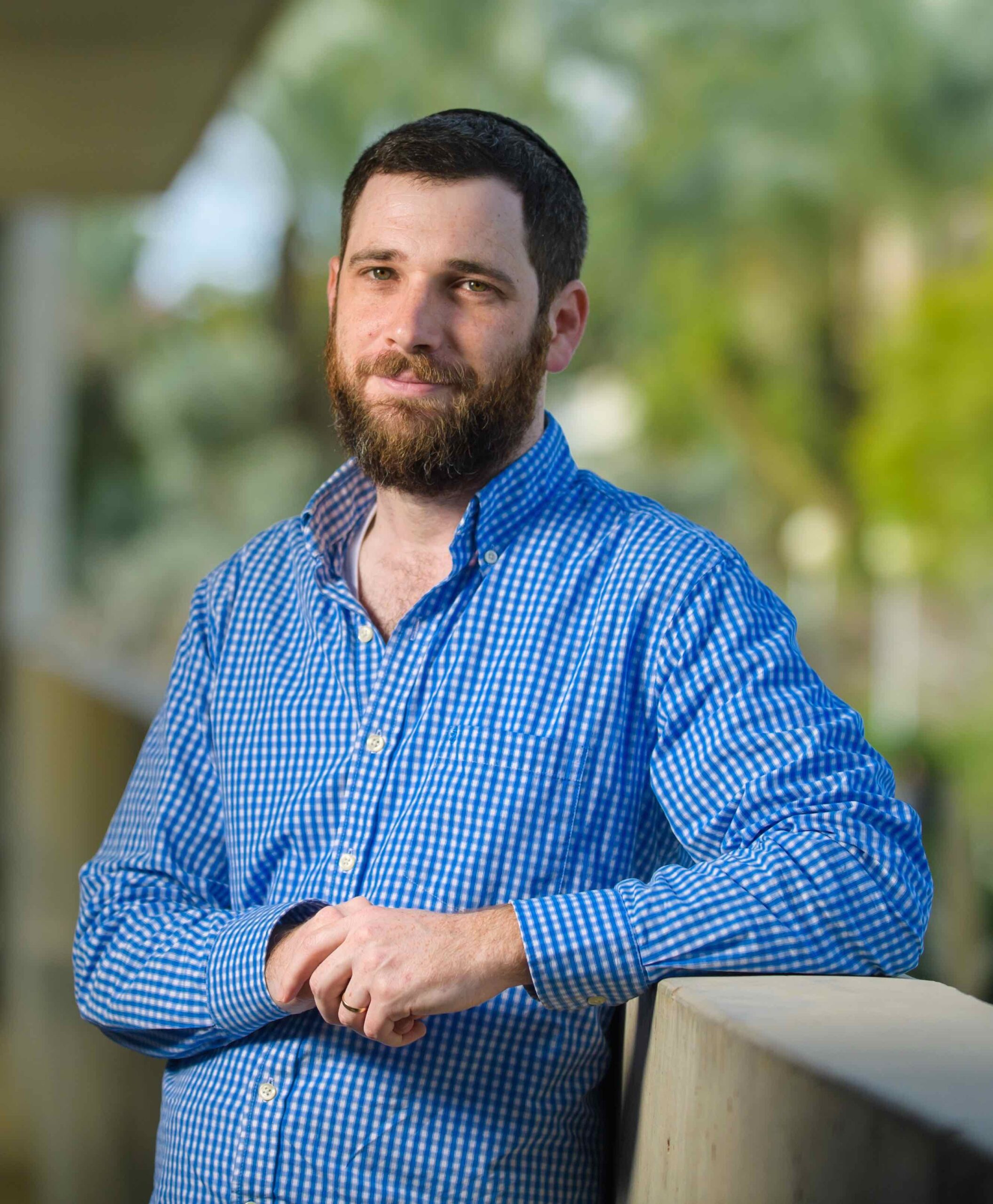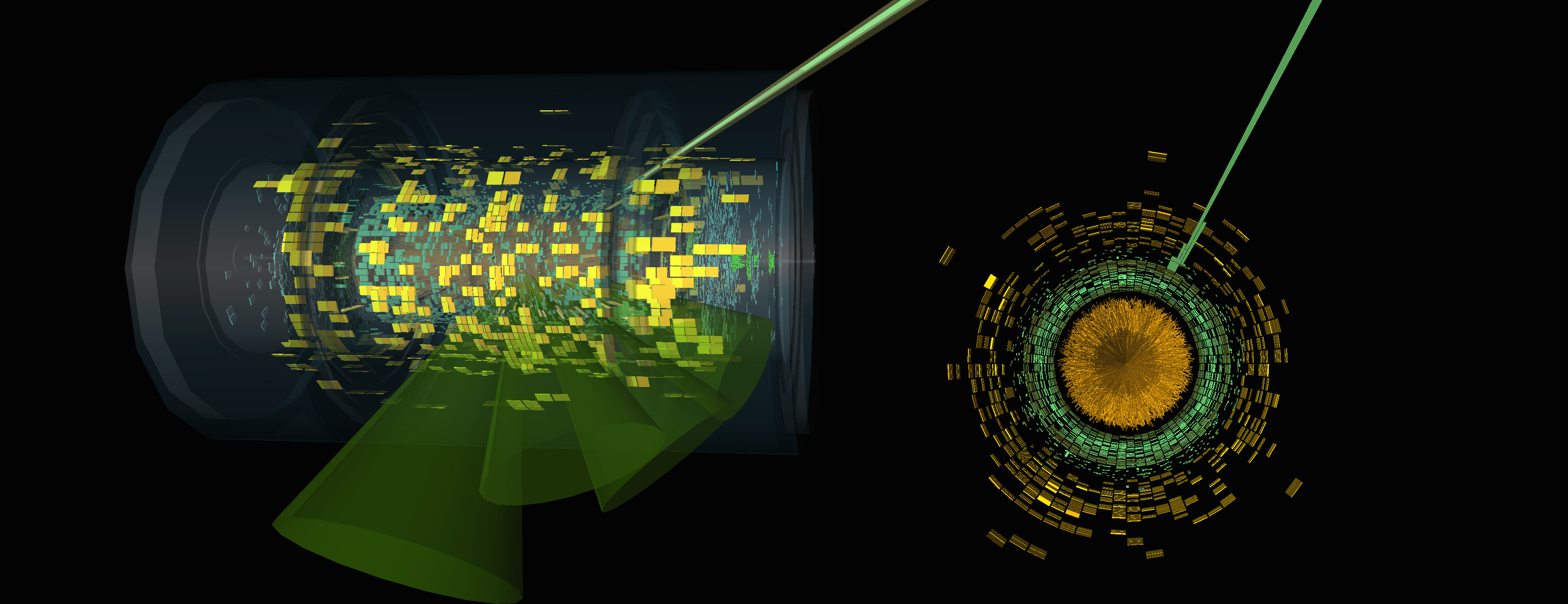
Zvi Citron
Relativistic Heavy-Ions Group
Research
The major topic in the field of relativistic heavy-ion collisions is the Quark Gluon Plasma (QGP), a state of matter in which the smallest constituents of matter are deconfined. The group’s primary research objection to understand this QCD state of matter and the conditions necessary for its formation, through the study of heavy-ion collisions in the ATLAS experiment at the Large Hadron Collider (LHC). This objective is complemented by efforts to maximize the data from the LHC heavy-ion program beyond QGP studies. Some examples are discussed below.

QGP FORMATION CONDITIONS

The main goal of this research is to gain a better understanding of the conditions under which a QGP may be formed, including defining and searching for new QGP signatures in collision environments previously thought unable to produce a QGP and to continue to refine our characterization of the QGP. The heavy ion program at the ATLAS experiment has achieved great success studying heavy ion collisions, but numerous questions concerning the QGP and other fundamental physics remain. c.
Recent results have suggested that a QGP may be formed even in proton-proton collisions defying previous assumptions; definitively identifying QGP signatures in such collisions remains an exciting and open topic. The achievement of this goal will be accomplished by employing novel analysis techniques to ATLAS collision data. In particular the measurement of Z bosons and heavy flavor mesons correlated with the size of proton-proton collisions. These observables will be studied also in proton-nucleus and nucleus-nucleus collisions for a fuller picture of their applicability as QGP signatures across several collision systems. The analysis will be based on ATLAS data from Run 2 of the LHC, and its results will be used to guide priorities for future analyses at the LHC.
RADIATION HARD ZERO-DEGREE CALORIMETER

The proposed research will provide for the development and eventual construction of new radiation hard Zero Degree Calorimeter (ZDC) detectors for the ATLAS and CMS experiments at the Large Hadron Collider (LHC). The currently installed ZDC at the LHC are not sufficiently tolerant of radiation for the upcoming running of the LHC, and further their design is not compatible with the modifications planned for the LHC tunnels in 2024-2025. We will devise a robust Cherenkov light detector of unprecedented radiation tolerance. This will begin with a comprehensive regimen of radiation testing of each detector component, in parallel with tests of each component’s effectiveness for light production and transmission. The results learned from these tests will be integrated into construction of detector prototypes whose performance will be checked in beam tests. The project will culminate with a final design for the ZDC.
ABOUT THE GROUP
The group focuses on high energy nuclear physics, in particular heavy ion collisions measured with the ATLAS experiment. The research comprises ATLAS data analysis and work on particle detectors from R&D to construction.
Graduate and postdoctoral positions are available, as well as projects for undergraduate students.
BACKGROUND MATERIAL
General information about the LHC and ATLAS from CERN‘s website.
Short summaries related to QGP basics:
A “Little Bang” arrives at the LHC
New Measurements of the Most Perfect Liquid
New Temperature Probe for Quark-Gluon Plasma
The Stopping Power of Hot Nuclear Matter
A Precise Probe of the Quark-Gluon Plasma
Short summaries related to small-system QGP:
A melting pot of protons
The Littlest Liquid
Finding a haystack in a field of haystacks
Longer Summaries:
Heavy Ion Collisions: The Big Picture and the Big Questions
Small System Collectivity in Relativistic Hadronic and Nuclear Collisions
“Mini-course” slides 1 (part 1)
“Mini-course” slides 1 (part 2)